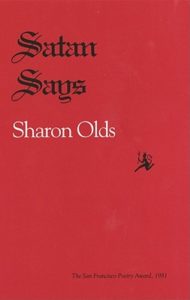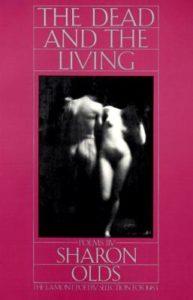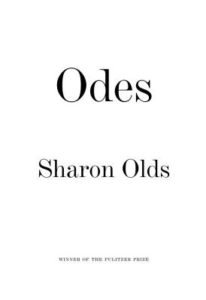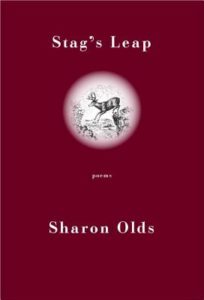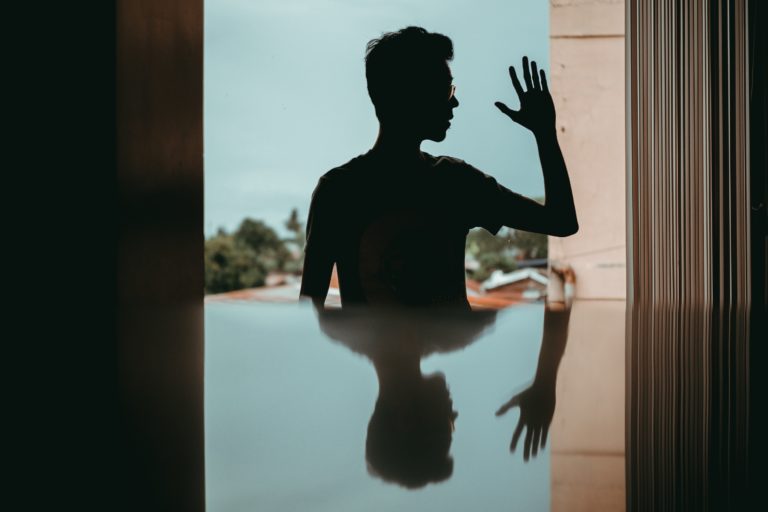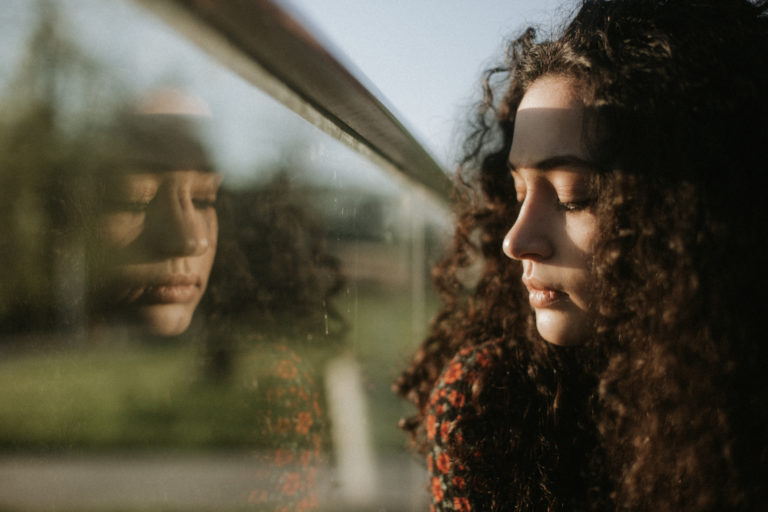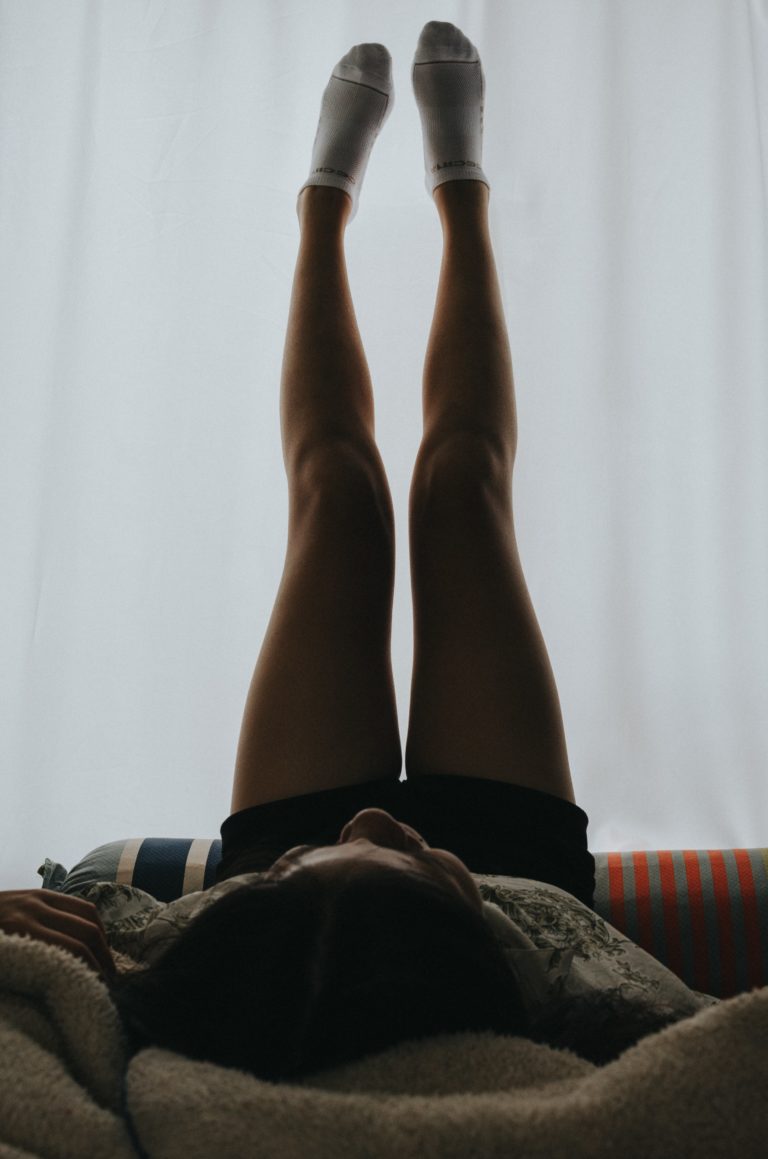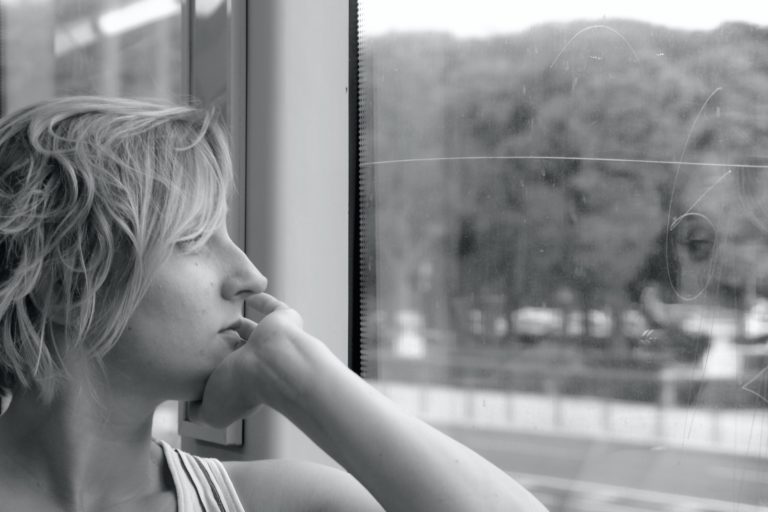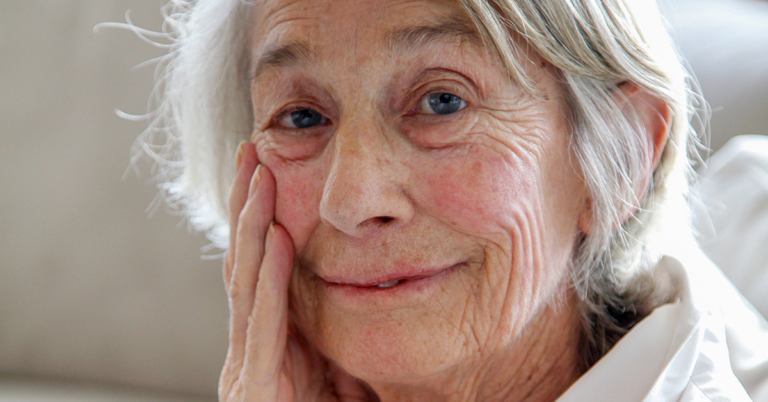Sharon Olds
Odes to the *****
When the wise and whimsical Sharon Olds started writing poetry over 40 years ago, she explored the subjects that interested her most — like diaphragms. “The politeness and the prudity of the world I grew up in meant that there were things that were important to me and interesting to me, [but] I had never read a poem about,” she once said. She won the Pulitzer Prize in 2013 for her collection Stag’s Leap about walking through the end of a long marriage. Her most recent book, Odes, pays homage to the human body and experience.
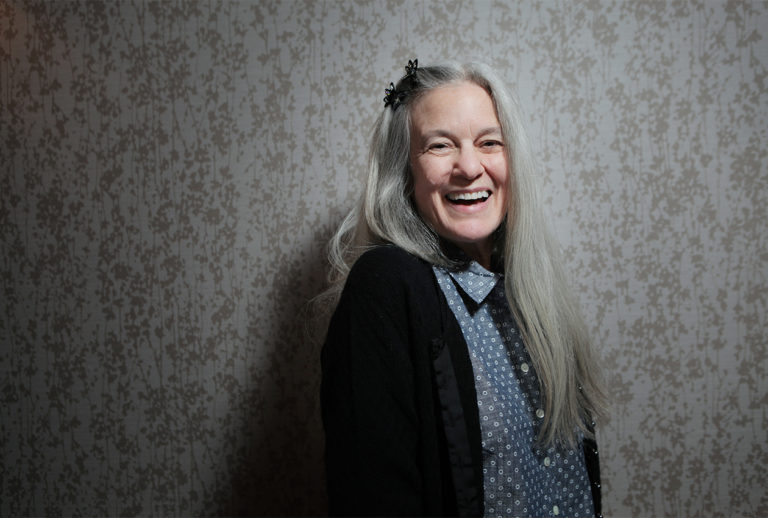
Image by Matt Writtle.
Guest
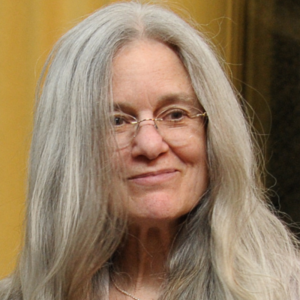
Sharon Olds is the Erich Maria Remarque Professor of Creative Writing at New York University. She is the author of Satan Says, The Dead and the Living, Odes, and Stag’s Leap — for which she won the Pulitzer and T.S. Eliot Prizes. She also helped found NYU’s outreach program for residents of Goldwater Hospital on Roosevelt Island and for veterans of the Iraq and Afghanistan wars.
Transcript
Krista Tippett, host: Sharon Olds has written: “The politeness and the prudity of the world I grew up in meant that there were things that were important to me and interesting to me, but I had never read a poem about.” She’s been writing poems about all those things now for over 40 years. She won the Pulitzer Prize for her collection Stag’s Leap, about walking through the end of a marriage she had also praised and opened up to poetry. Her most recent book, Odes, pays homage to aspects of the human body and experience that get bleeped out on public radio to follow FCC rules, including “Ode to the Clitoris,” “Ode to the Penis,” and “Ode to the Tampon.” So the conversation you’re about to hear has parental advisories, but please don’t let that stop you — it is a joy.
[music: “Seven League Boots” by Zoë Keating]
Sharon Olds: “Maybe one reason I do not wear makeup is to scare people. [laughter]
If they’re close enough, they can see something is different with me,
something unnerving, as if I have no features,
I am embryonic, pre-eyebrows, pre-eyelids, pre-mouth,
I am like a water-bear talking to them,
or an amniotic traveller,
a vitreous floater on their own eyeball,
human ectoplasm risen on its hind legs to discourse with them.”
[laughter]
Ms. Tippett: I’m Krista Tippett, and this is On Being. This conversation unfolded in Newark, New Jersey, at the 2018 Geraldine R. Dodge Poetry Festival.
[applause]
Ms. Tippett: This is a lively Sunday morning crowd — which leads right into where I wanted to start, which is that you speak, often, about having had a hellfire and brimstone Calvinist upbringing. And then your first book was called Satan Says. So I think that tells us where you went with that. But I wonder how you would start to describe the religious and spiritual background of your childhood as it appears to you now, because, I think, like many things in childhood, what we see changes as we look back at it across time.
Ms. Olds: Yes. Thank you. Thank you for having me here.
Well, I would say that even before I was born, I was a pagan dancer. I was upside-down, and I was engaged in rhythm. I don’t remember this, but it just seems true that the heartbeat and the breath and the borborygmi — the sounds of this digestion — so I was gradually hearing that. So I think, all my childhood, I was a pagan, underneath the burden of the particularly negative vision of Christianity that I was in the house of. My senses were super-pleasurable to me, and there was so much gorgeous beauty in the garden and — small garden and a brick barbecue, homemade, in which I could bake pies with lattice crusts, braided lattice crusts made of dirt. There was so much that was beautiful and good — and music — and then, I just tended to dance around.
I don’t know when I got the message that I was odd, but I sure got it. I tried to be normal, almost all my life. But now I figure, we’re all normal enough. Each of us is normal; each of us is weird. That’s my feeling now.
Ms. Tippett: There was something I read — The Guardian wrote a piece about you after you became the first American woman to win the T. S. Eliot Prize for Poetry. And in there was the story of the reaction you got when you first submitted your work to a magazine in the early 1970s, when they told you — do you know which one? Do you recall that story?
Ms. Olds: Yes.
Ms. Tippett: You want to tell what the response was?
Ms. Olds: Yes, I was submitting poems in ’75, ’76, ’77, ’78, and one magazine wrote back, “If you wish to write about your children, may we suggest The Ladies’ Home Journal? We are a literary magazine.” It wasn’t that atypical back in the ’70s.
Ms. Tippett: Yeah, you write as a woman; you don’t merely write about being a woman, but even if you did — what it is to be a woman is such a robust and essential elemental variation on the theme of what it is to be human. It seems to me that you just decided, against a grain, that that was interesting and important to you, and it was interesting and important to write about, to give voice to.
Ms. Olds: Yes. I didn’t decide; it just was so interesting to me. And loving dance and sexuality and — I think, almost every poem of mine that’s a sexual poem is a sexual love poem. I don’t think I’ve written much in the area — is there such a thing as “the area of pure sex”? I haven’t gone there. But I just wrote about the things that interested me the most. A poem would come to me, and so I just wrote what came out of my pen, out of my arm, connected to my soul and mind and body. The fact that it hadn’t been done much was like — oh! It was like — I don’t know — it was exciting to be writing, maybe, the first poem about a diaphragm. I didn’t know that until someone told me that.
Ms. Tippett: That no one had ever in history written a poem about a diaphragm before?
Ms. Olds: Someone said that to me.
Ms. Tippett: I think you probably have a lot of firsts in there. We’re going to dive really deep into that. I do, though, want to note — in this book, as well — because it’s The Dead and the Living — I think you pick up on something that also runs all the way through your work, which is the love that we have for our children and the intimacy, that particular intimacy is there. There’s one short poem that I just found. It captures so much in so few words, which is, of course, what poetry does, right? “Exclusive.” Do you remember this one?
Ms. Olds: Oh, yeah. This book came out in ’84, so the poem would’ve been written maybe two years before then, so maybe ten years old, twelve years old.
“Exclusive (for my daughter)”:
“I lie on the beach, watching you
as you lie on the beach, memorizing you
against the time when you will not be with me:
your empurpled lips, swollen in the sun
and smooth as the inner lips of a shell;
your biscuit-gold skin, glazed and
faintly pitted, like the surface of a biscuit;
the serious knotted twine of your hair.
I have loved you instead of anyone else,
loved you as a way of loving no one else,
every separate grain of your body
building the god, as you were built within me,
a sealed world. What if from your lips
I had learned the love of other lips,
from your starred, gummed lashes the love of
other lashes, from your shut, quivering
eyes the love of other eyes,
from your body the bodies,
from your life the lives?
Today I see it is there to be learned from you:
to love what I do not own.”
[applause]
Ms. Tippett: Yeah, “to love what I do not own.”
Ms. Olds: I changed it while I read it. On the page it says “like a god, as I had built you within me,” and I said, “as you were built within me.” And the next time that’s about to reprint, they’ll send me the book and ask, “Do you have any changes?” Oh, my God. So yeah, little things like that. I didn’t do it. It happened in me.
[music: “a collage of cut up flowers” by Lullatone]
Ms. Tippett: I’m Krista Tippett, and this is On Being. Today, with the Pulitzer Prize-winning poet Sharon Olds.
Ms. Tippett: It’s interesting that that especially fierce kind of love also has this — from the very beginning, this certainty that the flourishing of that life will mean separation from us, that we don’t own that love. I mean, we don’t ever own any love, but we have that illusion with other loves, maybe.
I want to move through a few of your books, but there’s something, also, in this book, about your son, and I’m thinking a lot right now about being the mother of a son. I just wonder if you would read that. There’s actually — there’s one in this — [page] 68 — so these two, I feel. Maybe, let’s talk about that and what this poetry surfaces for this conversation.
Ms. Olds: OK, so you’d like me to read these two.
Ms. Tippett: I think so.
Ms. Olds: Yes, thank you.
Ms. Tippett: If you’re all right — if that sounds good.
Ms. Olds: I am so all right. This is like a dream of heaven. And you make such an excellent God, I must say.
[laughter]
“Son”:
“Coming home from the women-only bar,
I go into my son’s room.
He sleeps — fine, freckled face
thrown back, the scarlet lining of his mouth
shadowy and fragrant, his small teeth
glowing dull and milky in the dark,
opal eyelids quivering
like insect wings, his hands closed
in the middle of the night.
Let there be enough
room for this life: the head, lips,
throat, wrists, hips, penis,
knees, feet. Let no part go
unpraised. Into any new world we enter, let us
take this man.”
[applause]
Ms. Tippett: That was [page] 96.
Ms. Olds: Thank you.
“My Son the Man”:
“Suddenly his shoulders get a lot wider,
the way Houdini would expand his body
while people were putting him in chains. It seems
no time since I would help him put on his sleeper,
guide his calves into the shadowy interior,
zip him up and toss him up and
catch his weight. I cannot imagine him
no longer a child, and I know I must get ready,
get over my fear of men now my son
is going to be one. This was not
what I had in mind when he pressed up through me like a
sealed trunk through the ice of the Hudson,
snapped the padlock, unsnaked the chains,
appeared in my arms. Now he looks at me
the way Houdini studied a box
to learn the way out, then smiled and let himself be manacled.”
[applause]
Now, if I was writing this poem now — I’ve learned so much since I wrote that poem, I would not be able to have chains in a poem without referring to the atrocious history of our country and without referring to my son’s good fortune in blending in by being white and being a WASP and all of that.
I also didn’t realize that my kids would grow up to be grown-ups like me and my former husband, imperfect people. I mean, my kids are wonderful people, but no person is perfect. Somehow, a little kid can seem so perfect. And then — you’re not going to make the mistakes your parents made, but I didn’t realize how many other mistakes were available to be made.
[laughter]
Ms. Tippett: That is so true! [laughs] I know. It’s so odd that we can endeavor to do it so much better — to parent so much better than we were parented — and objectively, you could make a case that many of us do. And yet, what we are raising are humans, and they end up having flaws and neuroses and their issues, and that’s also part of how they become who they are, and how they —
Ms. Olds: Yeah, yes.
Ms. Tippett: Are you thinking, these days, about being the mother of a son, and the men in our lives, and —
Ms. Olds: Well, I’m certainly thinking about men. I’m between boyfriends, so I’m always thinking about men. But what’s your —
Ms. Tippett: Well, like this line — this may just be me. We won’t dwell here. But this line, “Into any world we enter, let us / take this man.” Ms. Olds: Right, and the thing about being afraid of men — I was raised to be afraid of men. I was raised to not feel safe if I was the only person on the block, and then there was also a man, any man, or boys, especially more than one. It just was a time when many males felt very little respect for females — and anger of desire. And when I was 13, my classmate was kidnapped and raped and murdered in Berkeley, California. That, of course, showed us all a little bit, from the outside of that family, what was possible. And being afraid of men, afraid they’ll think I’m ugly, and just all kinds of fears.
I was in a wonderful marriage, and so I wasn’t afraid of my former husband. And I probably was a little bit of a sexist as a parent but not in the way you’d think, but more like thinking boys needed more encouragement, maybe, because it was harder for them to learn all that fine motor stuff and even some of the large motor stuff. But we talked about everything, my kids and I. So I think I did my best. I think that was the best I could do.
Ms. Tippett: I guess what’s on my heart now is that I feel like there’s so much unfinished work we have to do, as women and for women and in terms of gender. And yet, I also think that we have to do it together with men, and there’s something about that line — again, “take them with us” — anyway, and because, also, there are good men in our lives, right?
Ms. Olds: Oh, yes. Absolutely. A lot of them are here at this conference.
Ms. Tippett: And a lot of them are here, poetry-reading men.
So interesting to me — here we’ve had a flavor of the depth and breadth and profundity of what you are writing about and the voice you’re writing in.
You won the Pulitzer for Stag’s Leap, which was about the end of your marriage. And I don’t know, I’m sure other poetry has been written about divorce, so I don’t know if this is a world first. But I do feel like the way you fulsomely wrote about the experience, from many different places along the spectrum of that experience — I think the fact that you loved and honored the marriage that was ending, also, gave a certain character to the poetry. I wonder if I asked, is there one poem in that book, Stag’s Leap, that you would like to read, that you now appreciate at this remove.
Ms. Olds: There’s one I read often — that I read to the high school kids because I realized it’s a good poem for high school kids. It’s called “Known to Be Left.” It’s early on. It’s page 18. I wrote an awful lot of poems in the, maybe, four years in which this book was written, most of them in the first year. What did I say? [Page] 18. Thank you.
It doesn’t always seem to be in our hands, how open we can be in our poems and how we can tell a truth that is a little bit under the surface of the truth.
“Known to Be Left”:
“If I pass a mirror, I turn away,
I do not want to look at her,
and she does not want to be seen. Sometimes
I don’t see exactly how to go on doing this.
Often, when I feel that way,
within a few minutes I am crying, remembering
his body, or an area of it,
his backside often, a part of him
just right now to think of, luscious, not too
detailed, and his back turned to me.
After tears, the chest is less sore,
as if some goddess of humanness
within us has caressed us with a gush of tenderness.
I guess that’s how people go on, without
knowing how. I am so ashamed
before my friends—to be known to be left
by the one who supposedly knew me best,
each hour is a room of shame, and I am
swimming, swimming, holding my head up,
smiling, joking, ashamed, ashamed,
like being naked with the clothed, or being
a child, having to try to behave
while hating the terms of your life. In me now
there’s a being of sheer hate, like an angel
of hate. On the badminton lawn, she got
her one shot, pure as an arrow,
while through the eyelets of my blouse the no-see-ums
bit the flesh no one seems, now,
to care to touch. In the mirror, the torso
looks like a pin-up hives martyr
or a cream pitcher speckled with henbit and pussy paws,
full of the milk of human kindness
and unkindness, and no one is lining up to drink.
But look! I am starting to give him up!
I believe he is not coming back. Something
has died, inside me, believing that,
like the death of a crone in one twin bed
as a child is born in the other. Have faith,
old heart. What is living, anyway,
but dying.”
[applause]
Ms. Tippett: You’ve said that people were uncomfortable with you being — what did you say? — your being a “divorce sharee.”
Ms. Olds: Did I say that?
Ms. Tippett: Telling people about it, you felt like Typhoid Mary when you were going through that.
Ms. Olds: Oh, I was in a crowd of long marriages, with children at the center of all of our marriages. And yeah, I felt like I had harmed something. Of course, I hadn’t actually harmed anything or anyone. It was 50/50, and it turns out to have been a very good thing for my life as well as his. People change over the course of 32 years together, and I feel now that it was the right thing. I’m not ashamed in front of my friends, and I’ve had three extraordinary relationships during that time. I know things and I’ve felt things that I never would’ve known or felt if that hadn’t happened. So yes — but in the beginning, I did.
There’s a poem about a long drive with an old friend, wherein I confessed to him the question that was the worst thing. It’s called “The Worst Thing.” I confessed to him that the worst thing was — and then I just started boohooing, and I could hardly talk — was, what if I had harmed love? Love, like some ideal — I really feared that. And then he calmed that fear, and then it was easier.
[music: “As Ballad” by Lambert]
Ms. Tippett: After a short break, more with Sharon Olds. You can always listen again and hear the unedited version of every show we do on the On Being podcast feed, now with bite-sized extras — wherever podcasts are found.
I’m Krista Tippett, and this is On Being. Today with the poet Sharon Olds at the 2018 Geraldine R. Dodge Poetry Festival. She won the Pulitzer Prize for her 2012 collection Stag’s Leap, which she wrote over a period of several years through the end of her long marriage.
Ms. Tippett: Your newest book, your 2016 book, is Odes. And this is the one that has lots of words in it that we can’t say on public radio.
[laughter]
I’m going to say a few of them right here, and we’ll probably have to cut it out. It includes the “Ode to the Hymen,” “Ode to the Clitoris,” “Ode to the Penis,” “Ode to the Condom,” “Ode to the Tampon,” lots of others, “Ode of Withered Cleavage,” “Celibate’s Ode to Balls” — we can say “balls” on public radio. [laughs]
Ms. Olds: Who knew?
Ms. Tippett: I’m not going to ask you to read the ode to the penis because most of it would get — but I want to read a little bit of it because it’s fabulous. This section, it starts with “Someone told me that what I write about men is objectifying.” And then it ends: “I like you—not as an object but / as subject: a prime mover, working theory of plumbing and ecstasy, / a boy’s pride and anxiety, windsock of zephyr and gale, half / of the equation of creation.” It’s great. [laughs]
[applause]
Ms. Olds: Thank you.
Ms. Tippett: Thank you. [laughs]
You wrote this poem recently, which was published in The New Yorker — I don’t think it’s been printed — “No Makeup”? Would you read this one?
Ms. Olds: Sure. Do you have it?
Ms. Tippett: I do. I printed it out.
I was looking around, actually, this morning — I had it already in my preparation, and I read it in The New Yorker when it came out. It was fun. And then I was looking around this morning, because I wanted to print it out for you, and I came across this young woman, Caitlin Skinner, who has a YouTube channel, and she’s a military officer. She’s young and just lovely, smart, and a very appealing human. She’s just started doing this, and the first piece she’d done on her YouTube channel is her — she’s in her combat fatigues, and she’s talking about what she’s learned as a leader and as a mentor. And her second feed is her — not in her combat fatigues this time — reading this poem, “No Makeup.” It was beautiful. So anyway, I want you to read it.
Ms. Olds: Wow.
Ms. Tippett: But imagine that too.
Ms. Olds: Caitlin?
Ms. Tippett: Caitlin Skinner.
Ms. Olds: Skinner; Officer Skinner, thank you, thank you.
“No Makeup”:
“Maybe one reason I do not wear makeup is to scare people.
If they’re close enough, they can see something is different with me,
something unnerving, as if I have no features,
I am embryonic, pre-eyebrows, pre-eyelids, pre-mouth,
I am like a water-bear talking to them,
or an amniotic traveler,
a vitreous floater on their own eyeball,
human ectoplasm risen on its hind legs to discourse with them.
And such a white white girl, such a sickly toadstool,
so pale, a visage of fog, a phiz of
mist above a graveyard, no magenta roses,
no floral tribute, no goddess, no grownup
woman, no acknowledgment
of the drama of secondary sexual characteristics, just the
gray matter of spirit talking,
the thin features of a gray girl in a gray graveyard—
granite, ash, chalk, dust.
I tried the paint, but I could feel it on my skin, I could
hardly move under the mask of my
desire to be seen as attractive in the female
way of 1957,
and I could not speak. And when the makeup came off I felt
actual as a small mammal in the woods
with a speaking countenance, or a basic
primate, having all the expressions
that evolved in us, to communicate.
If my teen-age acne had left scars,
if my skin were rough, instead of soft,
I probably couldn’t afford to hate makeup,
or to fear so much the beauty salon or the
very idea of beautyship.
And my mother was beautiful—did I say this?
In my small eyes, and my smooth withered skin,
you can see my heart, you can read my naked lips.”
[applause]
Ms. Tippett: Thank you.
Ms. Olds: Thank you.
Ms. Tippett: I grew up in a small town in Oklahoma in the 1960s and ’70s, and it was a real makeup culture. I actually knew people, women, young brides, who got up at 5:30 in the morning, for an hour before their husband, to curl their hair and put on their makeup. I doubt that that lasted very long into the marriage, but…
So again, I see somebody saying that this is trivial, but actually, it’s a huge part of the lives of women, this makeup, no-makeup, how much, how dramatic it is; if at some point you decide to wear less…
Ms. Olds: And we go through phases, historically, and so it was a great shock to me to see 14-year-olds with very, very classy, very obvious and gorgeous but shocking — they had been children a couple of years before — so I think at first I thought, oh, we’re going back to the ’50s. The strides that we’ve made and the advances that we have made were like that, and now there’s going to be a dip.
But I think the advances we’ve made are real and are not going to disappear. They are needed in different ways, all over the Earth. I’m not shocked anymore. And it’s luxurious for me, when I cry at the movies, to just be able to wipe my eyes.
[laughter] But mainly, I just couldn’t function. Whatever way any of us — men, women, gay, straight — can function best, can let out of our mouths what we really mean, what we think and feel, then we should go for that style, whatever it is, I think.
Ms. Tippett: Sometimes I feel like younger women — and I’m sure this is a generalization that doesn’t apply to everybody — I feel like some of them — I think about my own daughter. I think they wear makeup because it pleases them.
Ms. Olds: That’s a good reason.
Ms. Tippett: I don’t feel like it’s all about the external, about pleasing others.
Ms. Olds: Right.
Ms. Tippett: And so that’s liberation.
Ms. Olds: That’s right. That’s right.
Ms. Tippett: Don’t you also envy how they don’t care if anybody can see their bra strap showing?
[laughter]
Ms. Olds: I think that’s so cool.
Ms. Tippett: I know. But this is one of these things, growing up a few decades ago — sorry, I’ve never said that in a — [laughs] see what you’re inspiring in me?
Ms. Olds: Well, I am so in agreement, and what I love is that I don’t have to worry anymore. Of course, there are certainly people who think that at my age, one shouldn’t have a bra strap showing. But then, it’s also an excuse to get bras with pretty straps.
Ms. Tippett: It is. And I think these girls who are 15 and who are 25 now, their bra straps are going to show, and they’re going to live to be 115. So that will be a whole new world. [laughs]
Ms. Olds: It’s going to be a tough world for them when they’re getting close to 100.
Ms. Tippett: Well, there’s that.
Ms. Olds: But we believe in you, young people. And we love you. And we thank you.
[music: “Dustland” by Dekko]
Ms. Tippett: I’m Krista Tippett and this is On Being. Today, with the Pulitzer Prize winning poet Sharon Olds.
Ms. Tippett: I would like for us to just hear some more poems, before we end, from Odes. I pulled out a few — I wonder if you might want to read the “Unmatching Legs” ode because I think that is also part of the story of where you are, and with your dancing and just that piece of drama in your life right now, as your life is progressing.
Ms. Olds: I have realized that this book came about as a book of odes. I was traveling with my then-boyfriend, and a book of Neruda’s just about fell off his shelf in an old used bookstore. It fell on him, and he said, “Here are poems. This is a book of poems.”
[laughter]
I read some of them — “Ode to Salt,” “Ode to the Table,” “Ode to a Dog” — and didn’t think of copying them. They were so entire, and it was Spanish-English, and I have enough Latin and Italian that I could actually understand, with the facing page. But then, later, weeks later, a week later, I thought, odes to common things. So the tampon is the first ode of this series that I wrote. And then it was also good to be able to write about sexuality without writing specific love poems to this man who would not have appreciated those poems going out into the world. I wrote them, and I have them, and I will put them into a book for him, a book of his. But that was one reason that I have some abstractions in this book.
“Unmatching Legs Ode” — I have to give a shout-out to Kwame Dawes — yo, Kwame — who accepted this poem for publication, which was just so thrilling, in the Prairie Schooner.
“Unmatching Legs Ode”:
“I don’t know why I am fairly cheerful
about my unmatching legs. I am not
cheerful about my foot soles, which were
like two brains, reading the ground,
and now have less than half their nerves, they are the
numbskulls to whom I trust my balance, their
surfaces crinkled tinfoil made of rubber.
But when I lie on the floor, on my back,
and look up, at my lower limbs, those
tapered feelers, I like them, even
though you cannot tell if the left is
withered or the right fat—the right
is swollen. When I was a new matron,
I thought that the blue-green line down my inner
calf—the great saphenous vein—
was a Nile beauty mark, and the way it
rose, when I was carrying my first young, there was
something cool in how it fit between the
ledges of the gastrocnemius
and soleus, like a snake between two
strata of rock. So when I see the leg’s mass,
I am almost proud of it, that it could
fit in it one and a half of its fellow.
And the skinny leg, the original one,
how can it be that I like the healed
gouge on it, from the edge of the porch
stair, when I fell upwards, or the one
from the corner fang of his truck door,
they hold the places I’ve been, they are like
passport stamps from his kingdom. I have always
liked my legs, the double stem
which lifts the big odd flower of me up
and up. It’s as if I fell in love
with them, when they and I began
to learn to walk together. The two of them were
best friends, who could press against each other
and feel the love, at the top of the stalks, and they were
twins—not identical, but
mirror twins, loving the other was
loving the self, they were ecstatics, they were
the thyrsus and the stylus, the healthy narcissus.
I’m sad they will rot. I wish our bodies
could leave us when they are done with us—
leave our spirits here, and walk away.”
[applause]
Ms. Tippett: Thank you.
Would you like to tell us anything else about your legs?
[laughter]
Ms. Olds: I like looking up muscles and nerves and finding out their names. I like weird words. I had a political struggle with that. I long wanted to leave a pile of poems at the checkout at ShopRite. I would look at the women who also were in line with me — and in those days, they were, gee, almost all women — and wonder which of my poems they might feel welcome to. And if it had a fancy, weird word near the beginning, eh, not so much.
So I tried to leave out the fancy, weird words, but the trouble was, I was in love with those words. They’re like magic spells. I studied languages because I love them so much. I’m not good at them, and I don’t know semantics or semiotics or anything like that, but I love those words. So, when I’m reading that, I see, uh-oh, “gastrocnemius” is coming. Get ready.
And again, having experienced myself as not confident but weird and partly not confident because of being weird but then developing a taste for the weirdness — and, you know, once we find friends, once we find close friends, they love us for our weirdness as much as our not-weirdness. And so, there’s this woman of, I don’t know, 65, whatever I was then, lying on the floor, watching her legs wave in the air — it’s normal. And it’s fun.
Ms. Tippett: [laughs] You said to me, a little earlier when we were speaking about sons, that if you wrote that again, you might note how much privilege — I think that’s an overused word; we need many words to talk about what we’re talking about with that word — and about him being white. You do have this “Ode to My Whiteness” in this book, which I think is an important poem.
Ms. Olds: Thank you. I would not have this ode, were it not for the brilliant poet Evie Shockley’s book, The New Black. In that book, I don’t remember if it’s “Poem to My Blackness” or “Ode to My Blackness,” but this poem is after Evie Shockley.
“Ode to My Whiteness”:
“You were invisible to me.
You went without saying.
You were my weapon secret from myself.
Whatever I got, you helped get it for me.
You were my ignorance.
Because of you I was not innocent.
I did not see that—you were my blinding light.
My dreams had a blank area in the center,
taking up most of the screen they played on in my sleep—
a blazing circle that blanked out the core of the scene.
I thought it was my mother’s violence,
but it was you, too.
You the unseen fat which fed me in the wilderness.
You my masonic handshake.
You my stealth.
You my drone.
You my collaborator.
You my magician’s cloak of steam,
you my dissembler.
You mine? I yours,
irisless eyeball, you my blindness,
inspiration of my helpless act,
you my silence. Evie’s blackness
a dancer, you another, the two of you moving together.”
[applause]
Ms. Tippett: This matter of whiteness is just one of these huge reckonings we have to have — and many conversations. And actually, I don’t know that there’s other poetry like this. So thank you for that contribution to our reckoning.
Ms. Olds: Thank you. Thank you.
[applause]
Ms. Tippett: I wondered if we could finish with a shorter — what is it? Oh, [page] 94, your “Ode to Dirt.” [laughs]
Ms. Olds: Oh, yes.
Ms. Tippett: I don’t know why — I just thought this would be a lovely way to end. It’s a little shorter poem, and it’s kind of about everything.
Ms. Olds: Thank you. It was one of the poems in this book not written early on in the ode-writing. I think, for every book that comes out of mine, there’s ten times as many poems, or five times as many, that didn’t make the grade. And there are early ones and late ones, and it took me so long — I couldn’t bear to believe that the Earth could die. I just couldn’t bear to believe it. So I didn’t, until two weeks ago or whenever it was, and that certainly changed my life. And I’m grateful that I’m more in touch with the truth than I had been. But this poem showed a little consciousness of that.
“Ode to Dirt”:
“Dear dirt, I am sorry I slighted you,
I thought you were only the background
for the leading characters—the plants
and animals and human animals.
It’s as if I had loved only the stars
and not the sky which gave them space
in which to shine. Subtle, various,
sensitive, you are the skin of our terrain,
you’re our democracy. When I understood
I had never honored you as a living
equal, I was ashamed of myself,
as if I had not recognized
a character who looked so different from me,
but now I can see us all, made of the
same basic materials—
cousins of that first exploding from nothing—
in our intricate equation together. O dirt,
help us find ways to serve your life,
you who have brought us forth, and fed us,
and who at the end will take us in
and rotate with us, and wobble, and orbit.”
Thank you.
Ms. Tippett: Thank you, Sharon Olds.
[applause]
Ms. Olds: Oh, thank you. Thank you.
[applause]
[music: “Arriére-Pensée” by Melodium]
Ms. Tippett: Sharon Olds is the Erich Maria Remarque Professor of Creative Writing at New York University. Her books of poetry include Satan Says, The Dead and the Living, Odes, and Stag’s Leap — for which she won the Pulitzer and T.S. Eliot Prizes. She also helped found NYU’s outreach program for residents of Goldwater Hospital on Roosevelt Island, and for veterans of the Iraq and Afghanistan wars.
Special thanks this week to Martin Farawell, Catherine Bloch, Paul Allshouse, David Mayhew, Julia Hahn-Gallego, and the Geraldine R. Dodge Poetry Festival and Foundation.
Staff: On Being is Chris Heagle, Lily Percy, Mariah Helgeson, Maia Tarrell, Marie Sambilay, Erinn Farrell, Laurén Dørdal, Tony Liu, Bethany Iverson, Erin Colasacco, Kristin Lin, Profit Idowu, Casper ter Kuile, Angie Thurston, Sue Phillips, Eddie Gonzalez, Lilian Vo, Lucas Johnson, Damon Lee, Suzette Burley, Katie Gordon, Zack Rose, and Serri Graslie.
Ms. Tippett: The On Being Project is located on Dakota land. Our lovely theme music is provided and composed by Zoë Keating. And the last voice that you hear singing our final credits in each show is hip-hop artist Lizzo.
On Being was created at American Public Media. Our funding partners include:
The Fetzer Institute, helping to build the spiritual foundation for a loving world. Find them at fetzer.org.
Kalliopeia Foundation, working to create a future where universal spiritual values form the foundation of how we care for our common home.
Humanity United, advancing human dignity at home and around the world. Find out more at humanityunited.org, part of the Omidyar Group.
The Henry Luce Foundation, in support of Public Theology Reimagined.
The Osprey Foundation — a catalyst for empowered, healthy, and fulfilled lives.
And the Lilly Endowment, an Indianapolis-based, private family foundation dedicated to its founders’ interests in religion, community development, and education.
Books & Music
Recommended Reading
The On Being Project is an affiliate partner of Bookshop.org and Amazon.com. Any earnings we receive through these affiliate partnerships go into directly supporting The On Being Project.





